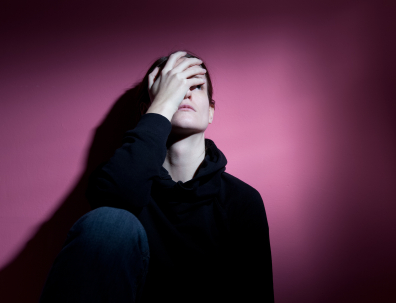
For many people suffering from addiction, there are also mental health issues going on. The Co-Occurring Center of Excellence defines the term co-occurring disorders (COD) as co-occurring substance-related and mental disorders. People said to have COD have one or more substance-related disorder as well as one or more mental disorder undetected.
For over 50% of people dealing with mental illness, addiction is a very real part of their lives as well. So, really having a co-occurring mental health issue coupled with an addiction is more the expectation than the exception to the rule. You are not alone, if you think you may be dealing with both. As a matter of fact, people who have mood disorders, like depression or bipolar disorder, are five times more likely to have an addiction as well.
Co-occurring disorders are more common that you may realize. Addiction and mental health conditions interact with each other in lots of different ways. For example, anxiety might be a trigger for you to start drinking or using drugs to calm down or feel more in control. The opposite can happen, if you use drugs or drink regularly, you may beginning feeling anxious. You may not know which came first, the addiction or the mental health issue. You may have suffered from symptoms of both for a long time. And really, the most important thing is that you address both through your treatment and recovery plan.
What is the impact of having co-occurring disorders?

We know that people dealing with co-occurring disorders have much more difficult lives due to complex nature of both disorders. This includes higher rates of inpatient hospital stays, higher rates of criminal justice involvement, and higher usage of emergency rooms. For individuals trying to manage co-occurring disorders without treatment, homelessness, joblessness and isolation are often a reality. When admitted to treatment, they are more likely to be kicked out of services or refused care. Relapse rates are higher and overall, life is just difficult.
We know that for real recovery to happen, both issues must be diagnosed and treatment must occur simultaneously. This is called integrated treatment. For many people dealing with co-occurring disorders, recovery must also be addressed in an integrated manner. One disorder may contribute to the intensity of suffering and difficulties in recovery of the other.
So, how prevalent are co-occurring disorders?

There are over 10 million people in America with co-occurring addictive disorders and mental illness. Overall, twenty-nine percent of those with mental health disorders have a substance abuse problem. According to estimates, about 47% of individuals with schizophrenia and 56% of individuals with bipolar disorders also have a substance abuse issue. It is reported that 80% of people with alcohol addiction have suffered from depression at some time in their lives. As much as one third of individuals who come into a substance abuse program report symptoms of Post Traumatic Stress Disorder. Eating disorders, anxiety disorders, and Attention Deficit Hyperactivity Disorder are also highly correlated with substance abuse disorders.
Is there a recovery path for people with co-occurring disorders?

As noted earlier, it is vitally important for both disorders to be treated simultaneously for the greatest possibility of success in recovery. It is also important to maintain a positive attitude of hope. Hope in recovery is the single most important predictor of maintaining recovery. Dr. Kenneth Minkoff, a national expert in the field of co-occurring disorders treatment, states that an “Empathic, hopeful, integrated treatment relationships are one of the most important contributors to treatment success…”
For people who have completed treatment, a long-term support system is also important to success in recovery. Continuing a relationship with a healthy sponsor, attending self- help support and participating in the recovery community through websites like this one are all part of a successful recovery plan. Self-help support groups and sponsors should encourage recovery from both addiction and mental illness. It is important to find a group that supports you in your journey toward integrated recovery.
Addressing mental health issues with therapy and medication are also proactive ways to sustain recovery. Medications can play a vital role in managing or alleviating symptoms of mental illness and addiction. For example, several antidepressant medications are also used to mitigate cravings. As with any disease, proper medical care is a key part of recovery.
We will discuss medications more in another section. However, it is important to follow your physician’s advice when medication is part of your recovery plan.
Getting on the path to recovery from co-occurring disorders includes:
- Addressing both issues simultaneously.
- Understanding that symptoms may change over time, especially as you work on recovery.
- Knowing that sometimes the addictive disorder may seem more intense, and at other times you may be dealing more with the symptoms of your mental illness. But remember that they are interwoven.
- A strong network that supports your recovery from both addiction and mental illness is vital.
- Keep up your faith and hope in recovery.
